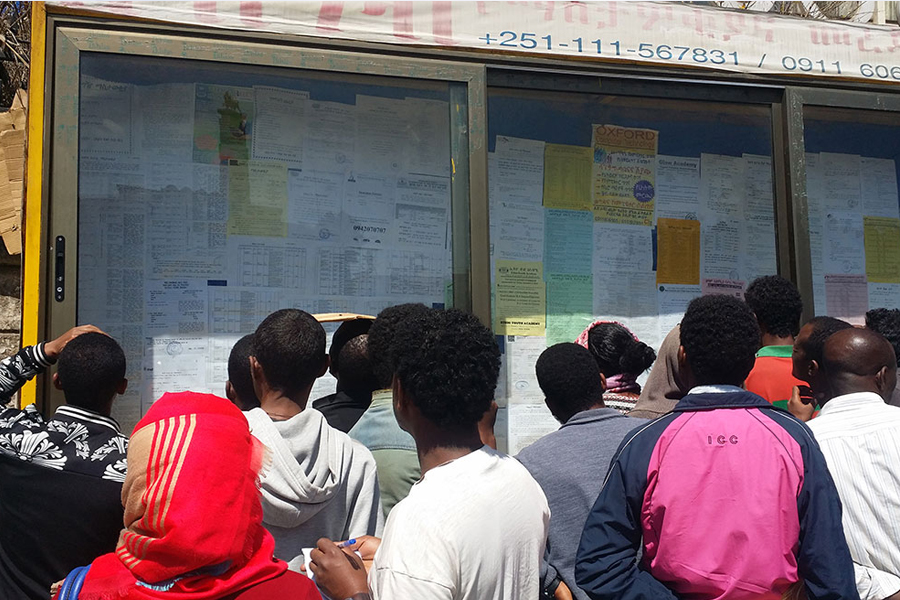
Radar | Jul 13,2019
A wave of "medical brain drain" is taking a toll on Ethiopia's healthcare system, with the country ranking among the top five in Africa for doctor emigration. Despite Ethiopian physicians earning an average annual salary of 4,800 dollars compared to 24,000 dollars in Nigeria, 32pc of employed doctors surveyed last year planned to leave their medical career for different businesses by the following year.
Many factors are driving this trend: low wages and long hours to limited opportunities for career progression. Outdated standards, budget constraints, and an increasing number of physicians without the corresponding expansion in facilities to accommodate them have created a unique set of challenges for Ethiopia's medical field. The government's policy until 2019, aimed at producing a large number of physicians, resulted in a four-fold increase in the number of doctors but without a corresponding increase in the number of hospitals. The mismatch has resulted in severe underemployment.
Federal health officials claim they are exploring options such as starting a matching fund to ease the burden on public hospitals and simplifying the process of setting up private practices. These measures, however, seem to scratch the surface of the problem barely. Ethiopia's public health infrastructure, including its 353 public hospitals and 3,706 health centres, is grappling with a severely limited budget, significantly affecting its ability to accommodate the sizeable medical workforce. Around 20,000 doctors are serving a population of over 100 million.
The situation is particularly critical in Tikur Anbessa Hospital, the largest state-owned referral facility in the country, where daily patient intake is above 15,000. Its annual budget is 400 million Br. A health economist blamed a centralised decision-making process and a lack of strategic, long-term planning for exacerbating the problems. Policymakers are urged to recognise the impact of low-quality healthcare and lack of access and allocate funds accordingly to respond to the dire situation.
You can read the full story here
PUBLISHED ON
Jun 17,2023 [ VOL
24 , NO
1207]

Radar | Jul 13,2019

Commentaries | Sep 21,2019

Fortune News | May 23,2021

Agenda | Jul 22,2023

Radar | Oct 26,2019

View From Arada | Aug 13,2022

View From Arada | Jul 17,2022

Sunday with Eden | May 11,2019

Radar | Aug 29,2020

Viewpoints | Mar 30,2019

Dec 22 , 2024 . By TIZITA SHEWAFERAW
Charged with transforming colossal state-owned enterprises into modern and competitiv...

Aug 18 , 2024 . By AKSAH ITALO
Although predictable Yonas Zerihun's job in the ride-hailing service is not immune to...

Jul 28 , 2024 . By TIZITA SHEWAFERAW
Unhabitual, perhaps too many, Samuel Gebreyohannes, 38, used to occasionally enjoy a couple of beers at breakfast. However, he recently swit...

Jul 13 , 2024 . By AKSAH ITALO
Investors who rely on tractors, trucks, and field vehicles for commuting, transporting commodities, and f...

Jul 5 , 2025
Six years ago, Ethiopia was the darling of international liberal commentators. A year...

Jun 28 , 2025
Meseret Damtie, the assertive auditor general, has never been shy about naming names...

Jun 21 , 2025
A well-worn adage says, “Budget is not destiny, but it is direction.” Examining t...

Jun 14 , 2025
Yet again, the Horn of Africa is bracing for trouble. A region already frayed by wars...